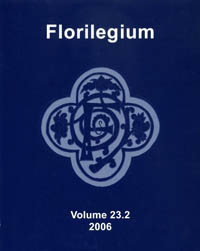Insensate Saints: Contextualizing Non-Suffering in Early Dominican Legendaries
Résumé
In the middle decades of the thirteenth century, the use of torture was introduced into papal inquisitions, which were often administered by members of the Dominican Order. In these same decades, Dominican authors created a new literary genre, the abbreviated legendary of saints' lives including Jacobus de Voragine's extremely poplar Legenda aurea. The authors of this new genre collected and then abbreviated many saints' lives, the majority of which were vitae of martyrs that emphasized the torture the martyrs endured while minimizing any descriptions of saintly pain or suffering. The chronological coincidence between the introduction of torture into inquisitions and the creation of the legendaries, examined alongside the content and popularity of the legendaries themselves, suggests that these texts may have helped effect a widespread cultural shift towards acceptance of the use of torture within inquisitions and other judicial systems in medieval Europe.Téléchargements
Publié-e
2006-06-06
Comment citer
Trembinski, D. (2006). Insensate Saints: Contextualizing Non-Suffering in Early Dominican Legendaries. Florilegium, 23(2), 123–142. Consulté à l’adresse https://journals.lib.unb.ca/index.php/flor/article/view/12551
Numéro
Rubrique
Articles



